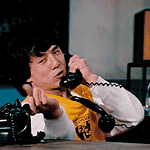Welcome to the free version of The Culture Journalist. To get the full version of every episode, including this one, as well as culture recs, essays, and other bonus goodies, subscribe for just five bucks a month.
What do billionaire Peter Thiel, Hillbilly Elegy author J.D. Vance, and edge-lordy, art-kid podcasts like Red Scare and Wet Brain have in common? According to journalist James Pogue, the author of an expansive, 9,000-word article that ran in Vanity Fair last month, they’re all part of a loose-knit constellation of fringe public intellectuals, conservative politicians, and independent media personalities that make up something called the New Right.
It’s not exactly the next wave of Trumpism, even if it occasionally looks that way: On the back of an endorsement from the former president, and funding from Peter Thiel, J.D. Vance recently won the Republican primary in the race for the U.S. Senate in Ohio. But James’ reporting suggests that the movement is a lot more ideologically heterodox, and weirder, than that. Some of the players in the movement are Marxists or former Marxists; others, including thinkers that Vance himself is taking cues from, are sketching out visions of society that, to our ears, sound an awful lot like a socially conservative dictatorship.
If you watched the third season of Succession, you might recall the episode where the Roy family travels to a stodgy conservative political conference in Virginia to vet the year’s line-up of presumptive Republican presidential candidates, and Roman ends up taking a weird liking to a young politician with thinly veiled fascist sympathies. Well, James’ article, titled “Inside the New Right, Where Peter Thiel is placing his biggest bets,” is kind of like what would happen if a left-wing reporter infiltrated that event, fly-on-the-wall style, and that conference was happening in real life.
The action takes place over a weekend at NatCon, an annual conference that James describes as a “big-tent gathering for a whole range of people who want to push the American right in a more economically populist, culturally conservative, assertively nationalist direction.” And in a manner not dissimilar from a show like Succession, he simply presents what he observes there, and quotes from the people he encounters, without much in the way of commentary or editorializing.
The piece is a deeply chilling read. But the public response to it has been arguably just as thought-provoking: Readers and commentators on the left of the culture war, including the hosts of this podcast, heralded it as a frightening account of a fringe movement that could, sooner than we think, represent an actual threat to American democracy. People on the right, including James’ own sources and post-woke antagonists like Glenn Greenwald and Bari Weiss, praised it for being the rare work of journalism that engaged with its sources, and their thinking, in a nuanced way. (Jeff Bezos also praised James’s article in a quote tweet of Greenwald, which was just weird.)
All in all, the piece’s existence raises important questions about the fraught business of reporting on the right in post-Trump America: What are the dangers, especially in this media climate, of giving any real estate at all to the opposition’s ideas? What are the dangers of not engaging with them, especially when half of America has already accepted many of them as fact? And perhaps most importantly, is the media’s approach to reporting on the right achieving the intended result?
There are no easy answers, but as the culture war drags on and political media begins to feel like a zero-sum game that entrenches the Right deeper into its point of view, the very fact that there aren’t easy answers feels important to examine. James joins us on today’s show to do just that, and to share his thoughts on why acquainting ourselves with the rhetorical moves these movements are making may ultimately be in the left’s best interests.
“I think that there's a huge danger for newsrooms, and indeed for our democracy, if you can't see the emotional and intellectual currents that are forming,” he says. “Because they're going to burst out and bulge in ways that will be wildly unexpected, and that our policymakers and leaders and politicians won't even be able to respond to because they don't know what's happening until it's already in their face.”
Speaking of how high-stakes these rug-pull moments can be, we also discuss the leaked Supreme Court opinion overturning Roe v. Wade and what it can tell us about the “apocalyptic death match” that American politics has become (James’ words); whether there’s a case to be made for long-form literary journalism in pushing the political conversation forward; and the role, if any, that downtown Manhattan scenesters have to play in all this.
Follow James on Twitter
Read more by James


















The tricky business of reporting on the New Right